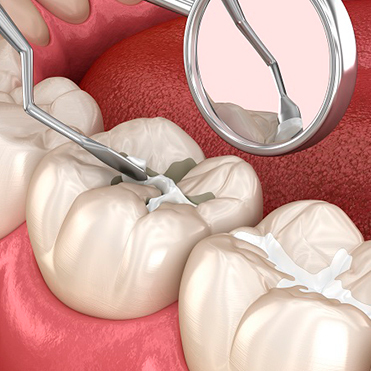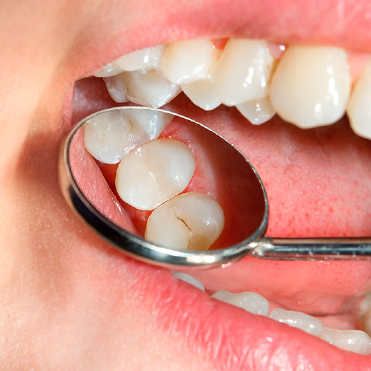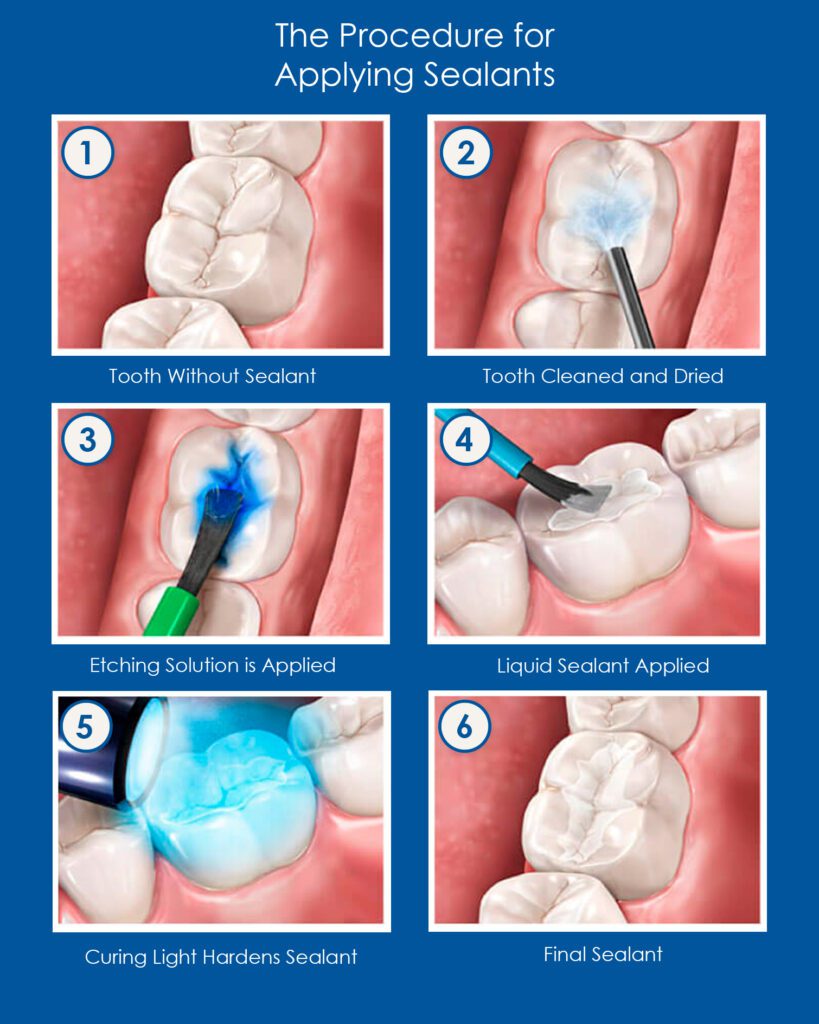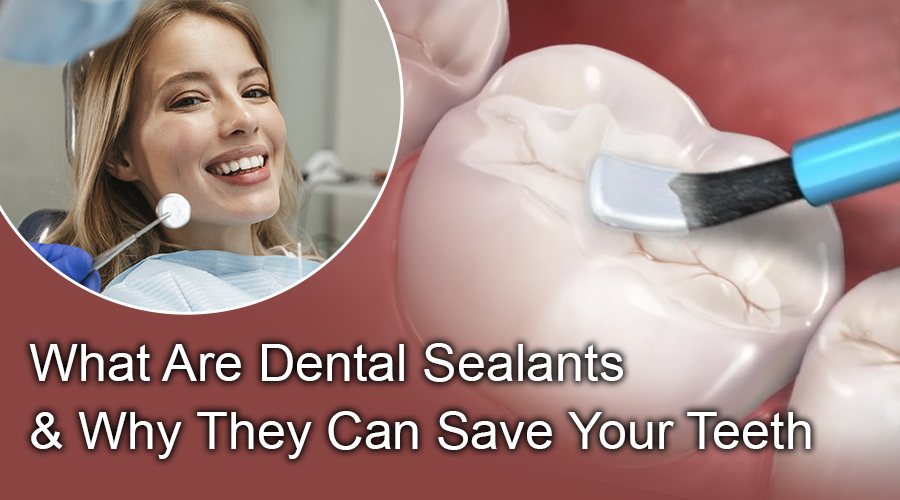As much as we’d love to have good oral health by only brushing, it’s just not enough. The truth is that dental hygiene routines do help keep your teeth safe, but you’re still vulnerable to decay and cavities.
Because of this, solutions like sealants can be incredibly beneficial to keep your teeth strong and healthy for a long time.
If you still have teeth without any signs of decay or you’re looking for ways to save your kid’s smile, stick around to learn more about dental sealants and how they can help you save precious time and money by protecting your oral health.
What Are Dental Sealants?

Dental sealants are thin coatings for your teeth that provide a layer of protection and help prevent tooth decay.
Most sealants are placed in the molar teeth. Why? Because your molars have tiny grooves that are perfect for food and plaque to get stuck.
If that wasn’t enough, your toothbrush’s bristles can’t always reach into these dark, wet grooves to get them cleaned, which creates ideal circumstances for tooth decay to flourish and keep developing.
Sealants fill up the small grooves and create a smoother, easier-to-clean surface that completely stops plaque from accumulating and preventing decay.
According to the Centers for Disease Control and Prevention, dental sealants reduce the risk of decay by 80% in your back teeth.
A sealed tooth is significantly less likely to get harmful cavities that will only cost you expensive treatments and pain in the future.
This is especially important for children, as they do not always have the best oral habits, and their new teeth don’t have the same resistance as adult teeth.
Who Is a Good Candidate for Sealants?

Sealants are beneficial for children and adults, but the sooner you receive them, the better. That’s why they’ll likely have a better effect on children and teenagers (ages 6 to 14).
Sealing the first molars as soon as they emerge can help prevent a good number of cavities from developing, which will be beneficial for their oral health and finances in the long term.
However, if you’re seeking this treatment for yourself and are wondering, “can adults get dental sealants?” the answer is: yes! You can still take advantage of dental sealants as long as you don’t have decay or fillings on the teeth you want to protect.
What Is The Procedure for Applying Sealants?

Fortunately for both children and adults, the process of getting these coatings it’s quick, easy, and painless. Here are the steps:
1- Your dentist will clean your tooth surface very well by brushing it.
2- Then, they’ll apply an acidic liquid on the chewing surface of your tooth for a couple of seconds and then rinse it off (this will help the sealant attach to the tooth).
3-Once your tooth is dry, your dentist will apply the sealant in the form of a liquid and harden it afterward with a light.
When the sealant becomes dry, it’s ready and safe for you to eat and speak as you usually do. And remember how important it is to keep up with brushing and flossing to ensure your smile is as protected as it can be.
4 Advantages of Dental Sealants

Let’s sum up the advantages and benefits of this treatment:
»Pain-free
»They aren’t noticeable
»Don’t require drilling or anesthesia
»They’re durable and can last for about 2 to 7 years or more
Although sealants can last for a long time, you should still visit your dentist at least twice a year to see how they’re doing.
This way, you can monitor their tear, wear and determine how much longer they will serve you until you need a replacement if you wish to do so.
How Safe Are Dental Sealants?
As always, safety goes first.
We know that you likely want any treatment for you, or especially children, to be as safe as it can be. When it comes to the safety of dental sealants, we would say that the biggest issue is BPA.
BPA is an artificial substance you can usually find in plastics. It’s a problem because large doses of it can be lethal to humans.
And well, dental sealants are made of plastic, so you can find certain residues of the BPA component in them.
Given that you’ll probably carry sealants for a few years, it’s natural to be concerned about the amount of exposure you’ll have to the chemical.
With that said, you should know that the American Dental Association has determined that the quantity of BPA present in oral sealants is very low.
This means that you’re more likely to be exposed to large amounts of BPA in your daily life than you are by getting sealants.
In conclusion, they’re pretty safe, and you can trust them to keep your teeth safe and sound.
Nowadays, you have more possibilities of keeping your teeth until you grow old. Although the biggest part depends on you, treatments like sealants can play a key role in saving your oral health and finances.
For more information on dental sealants and getting to know other treatments you might not know you need, contact us! We’ll have one of our experts give you a call!




Leave a Reply